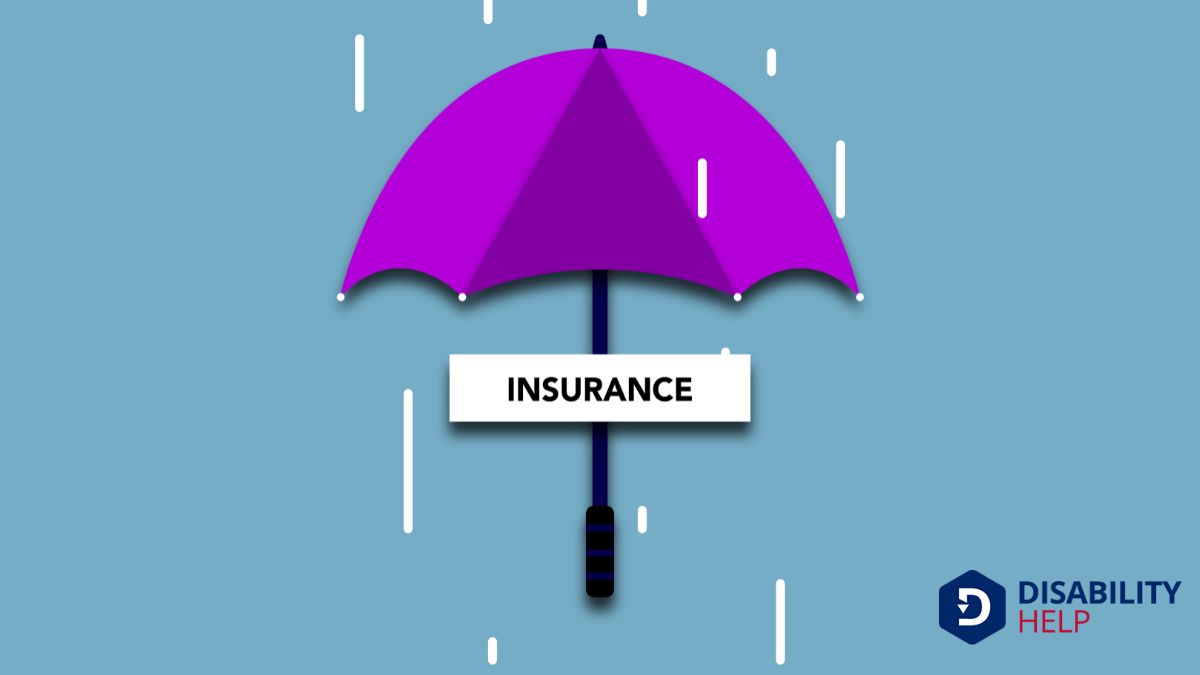Yes, mental health is often covered under short-term disability plans, but it's essential to know the specifics. Coverage depends on having a valid diagnosis from a licensed healthcare professional and meeting eligibility criteria. Not all mental health conditions are covered, so reviewing policy terms is key. Typical benefits replace a portion of salary for a limited time. Stay informed on policy details to navigate the process smoothly and guarantee you're fully prepared.
Key Takeaways
- Mental health coverage under short-term disability often requires a diagnosis from a licensed healthcare professional.
- Coverage may include common conditions like depressionA mental health condition marked by persistent feelings of sadness and loss of interest., anxiety, and bipolar disorderA mental health condition characterized by extreme mood swings, including manic and depressive episo....
- Policies may have specific waiting periods before mental health benefits are activated.
- Not all mental health conditions or treatments are covered, and pre-existing conditions might be excluded.
- Documentation, including medical records, is necessary to support a mental health disability claim.
Understanding Short-Term Disability Insurance

Short-term disability insuranceInsurance that provides income replacement for a limited time when an employee is unable to work due... is an important safety net that provides income replacement if we suddenly find ourselves unable to work due to a temporary illness or injury.
It guarantees we can continue meeting our financial obligations without the added stress of lost wages. Typically, this type of insurance covers a portion of our salary, often around 40-70%, for a limited duration, usually up to six months.
Understanding the specifics of our policy is essential. We need to know what conditions qualify, the waiting period before benefits begin, and the documentation required.
Common Mental Health Conditions
Mental health conditions like depression, anxiety, and bipolar disorder are increasingly common in our fast-paced world. We find that life’s pressures can often lead to emotional and psychological challenges.
Depression may drain our energy and make daily tasks seem impossible, while anxiety can cause overwhelming worry and fear.
Bipolar disorder, with its mood swings, can be confusing not just for those experiencing it but also for their loved ones. Understanding these conditions helps us empathize and offer support.
It’s essential to remember that these are genuine health issues, not just phases or personality flaws. As we navigate these challenges, seeking professional help and fostering open conversations can make a significant difference.
Together, we can work towards breaking the stigmaThe negative attitudes and discrimination faced by individuals with disabilities due to societal ste....
Coverage for Mental Health Under Short-Term Disability
Let's explore how mental health is covered under short-term disability plans.
We'll look at the eligibility criteria, ensuring we comprehend who qualifies and what conditions are included.
Then, we'll guide you through the claim process, making it clear and straightforward.
Eligibility Criteria Explained
While maneuvering through the intricacies of short-term disability plans, it’s vital to understand the eligibility criteria for coverage, especially concerning mental health conditions.
We must first guarantee that our mental health condition is deemed a qualifying disability under the specific plan. Most plans require a diagnosis from a licensed healthcare professional, highlighting the condition's impact on our ability to perform job duties.
Additionally, there's often a waiting period we must satisfy before benefits commence. This period can vary, so reviewing the plan's fine print is important.
We also need to provide proof of employment status and job role limitations due to the mental health condition. By understanding these criteria, we can better navigate the process and guarantee our needs are met.
Claim Process Overview
Maneuvering the claim process for short-term disability coverage related to mental health can feel overwhelming, but understanding the steps can ease the journey.
First, we should gather all necessary documentation, including medical records and a detailed statement from our healthcare provider. This supports our claim and demonstrates the need for time off due to mental health.
Next, let's notify our employer and the insurance provider promptly. They'll guide us through their specific requirements.
It's vital to complete all forms accurately and submit them on time. Staying organized and keeping copies of everything helps us track progress.
Finally, we should stay in touch with our insurance representative. They can provide updates and address any concerns, ensuring a smoother process.
Limitations and Exclusions to Be Aware Of
Maneuvering the intricacies of short-term disability plans can be challenging, especially when it comes to understanding their limitations and exclusions.
We need to be aware that not every mental health condition or treatment is covered. Some plans might exclude pre-existing conditions, meaning if we've sought treatment for a specific issue before coverage began, it may not be eligible for benefits.
Additionally, the duration of benefits can vary, often capped at a certain number of weeks. It’s essential to check if there are specific waiting periods before benefits kick in.
Navigating Policy Terms and Conditions
Understanding the terms and conditions of short-term disability policies is vital for guaranteeing we get the coverage we expect. Let's explore how we can navigate these documents with clarity.
First, we should identify the specific language around mental health benefits. Policies might use different terms, so recognizing these variations helps us avoid confusion. It's essential to check for any waiting periods or specific requirements tied to mental health claims.
We must also pay attention to any exclusions or limitations, as these can greatly impact our coverage. By carefully reading the policy, we can spot potential red flags.
If something's unclear, we shouldn't hesitate to ask questions or seek clarification. This proactive approach guarantees we're fully informed and prepared to make the most of our coverage.
Steps to Apply for Short-Term Disability for Mental Health
When we're ready to apply for short-term disability for mental health, following the right steps is essential to guarantee a smooth process.
Let’s break it down into clear actions:
1. Consult with Your Healthcare Provider: We should begin by discussing our symptoms with a trusted provider.
They'll need to confirm our condition and provide necessary documentation.
2. Review Our Policy: Understanding the specifics of our short-term disability plan is vital.
We need to know what’s covered and any time limits involved.
3. Complete the Application: Filling out the application accurately is key.
Providing detailed information helps avoid delays.
4. Submit Required Documentation: Along with the application, we must submit all supporting documents, such as medical records and notes from our healthcare provider.
Tips for Ensuring Adequate Coverage
Securing adequate coverage for our mental health within a short-term disability plan requires proactive steps.
First, let's review our current policy details thoroughly to understand what's covered. We should confirm that mental health conditions are explicitly mentioned and look for any exclusions. It's wise to contact our insurance provider to clarify any ambiguous terms. We might also consider supplementing our plan with additional coverage options if needed.
Next, maintaining thorough documentation of our mental health condition is essential. Regularly update records from healthcare providers to support any claims.
Finally, let's stay informed about any changes in our policy and mental health coverage laws. By taking these steps, we can better protect ourselves and make certain we’re adequately covered during times of mental health challenges.
The Role of Employers in Mental Health Coverage
While we take steps to guarantee our mental health is covered by short-term disability plans, we must also consider how employers contribute to this coverage landscape.
Employers play a pivotal role in shaping the mental health support we receive. Here’s how they can enhance our coverage:
- Policy Selection: Employers choose which short-term disability plans to offer, directly affecting mental health coverage options for employees.
- Workplace Culture: By fostering an open and supportive work environment, employers can encourage employees to seek mental health help without stigma.
- Education and Training: Providing mental health awareness training guarantees that employees and managers recognize and address mental health issues.
- Additional Benefits: Employers can offer supplemental benefits, like Employee Assistance Programs (EAPs), to provide further mental health support.
Understanding these aspects helps us advocate for better mental health coverage.
Future Trends in Mental Health and Disability Insurance

As we look to the future of mental health and disability insuranceA form of insurance that provides income to individuals who are unable to work due to a disability., we're seeing evolving coverage policies that better address diverse needs.
Technological advancements are also reshaping how we access and manage mental health care, enhancing both efficiency and personalization.
It's essential for us to stay informed and adaptA grassroots disability rights organization in the U.S. that focuses on promoting community-based se... to these changes to guarantee thorough support for mental well-being.
Evolving Coverage Policies
In recent years, we've witnessed a dynamic shift in coverage policies for mental health and disability insurance, reflecting a growing recognition of their importance.
As we endeavor to understand this evolution, let's consider some key trends:
- Expanded Coverage: More plans now include mental health conditions, acknowledging their impact on our well-being and work capabilities.
- Parity Laws: Legislation mandates that mental health coverage must be on par with physical health, ensuring fair treatment.
- Employer Initiatives: Employers increasingly offer extensive plans, recognizing the need for mental health support in the workplace.
- Customizable Options: Insurers provide flexible plans tailored to individual needs, enhancing accessibilityThe design of products, devices, services, or environments to be usable by people with disabilities.... and relevance.
Technological Advancements Impact
Thanks to rapid technological advancements, the landscape of mental health and disability insurance is poised for significant transformation. We’re seeing innovative tools that promise to reshape how we approach both mental health care and insurance policies.
TelemedicineThe use of technology to provide medical care and consultation remotely, increasing access to health... platforms enable easier access to mental health professionals, breaking down geographical barriers and providing timely support. AI-driven diagnostics and personalized treatment plans allow us to address mental health issues more effectively and tailor coverage options to individual needs.
Furthermore, wearable technology offers real-time health monitoring, potentially alerting us to mental health concerns before they escalate. As these technologies become more integrated into our daily lives, insurers might develop more flexible plans that reflect this proactive approach, ultimately making mental health coverage more accessible and thorough.
Conclusion
In steering through the complexities of short-term disability coverage for mental health, we've seen that understanding policy details and being proactive are essential. It's important to familiarize ourselves with potential limitations and guarantee we have adequate coverage. By collaborating with employers and staying informed about future trends, we can advocate for better mental health support. Let's continue to prioritize mental wellness and aim for a more inclusive approach in disability insurance that addresses all our needs.






